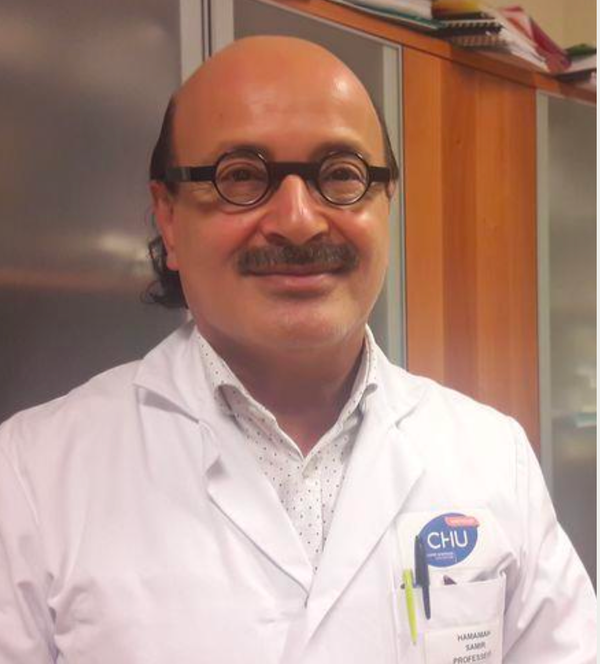


Samir Hamamah, gynecologist: 'Our reproductive health is at risk'
InterviewGynecologist Samir Hamamah co-authored the report that inspired the plan to combat infertility, announced on Tuesday, January 16, by French President Macron. He tells Le Monde he is delighted that the subject is 'no longer taboo.'
"A major plan to combat infertility" was announced by French President Emmanuel Macron at his press conference, held at the Elysée Palace on Tuesday, January 16. It's a plan designed to respond to a fact: In France, on average, one in four couples has difficulty conceiving, and the fertility rate in France has been declining for several years. In 2023, the total fertility rate stood at 1.68 children per woman, compared with 1.79 in 2022, according to the annual demographic report from the French National Institute for Statistics and Economic Studies (INSEE), presented on Tuesday. The number of births, meanwhile, fell by 6.6% in 2023 compared with 2022.
The plan put forward by the French president broadly takes up the conclusions of the expert report delivered in February 2022 by Dr. Samir Hamamah, head of the reproductive biology department at the Montpellier CHU hospital, and Salomé Berlioux, founder of the Chemins d'Avenirs association. The gynecologist discusses his proposals for improving infertility care in France with Le Monde.

You co-wrote the report on infertility in France. How do you respond to the French president's announcements?
I'm really delighted by this announcement. Infertility is no longer taboo. It's no longer seen as a shameful condition. We're realizing that it affects everyone. I'm proud to have championed this report. Today, the government has released a €30-million fund to work on women's health. It's a start. Calls for projects to further research will be published on January 29. Things are moving!
How can infertility be better managed?
By focusing on prevention. The August 2, 2021, law relating to bioethics has been paramount, as it now allows women and men, without medical problems, to bank a few eggs or sperm straws. However, for a comprehensive approach, it's essential to reach out to young people at an earlier stage. It's time to start talking about fertility from middle school onwards, to teenagers. It's not about making them feel guilty or being moralizing, nor is it about placing the burden on them or appearing pronatalist. The aim is simply to give them practical advice. Addressing infertility needs to be holistic, going beyond the medical realm.
I'd like to see the creation of a national fertility and childbirth institute, following the model of the National Cancer Institute established in 2005. This would create an interface between all the relevant ministries, and highlight the issue with the general public.
In your report, you also stress the importance of enhancing training for doctors and healthcare professionals. Why is this?
You have 70% of this article left to read. The rest is for subscribers only.
